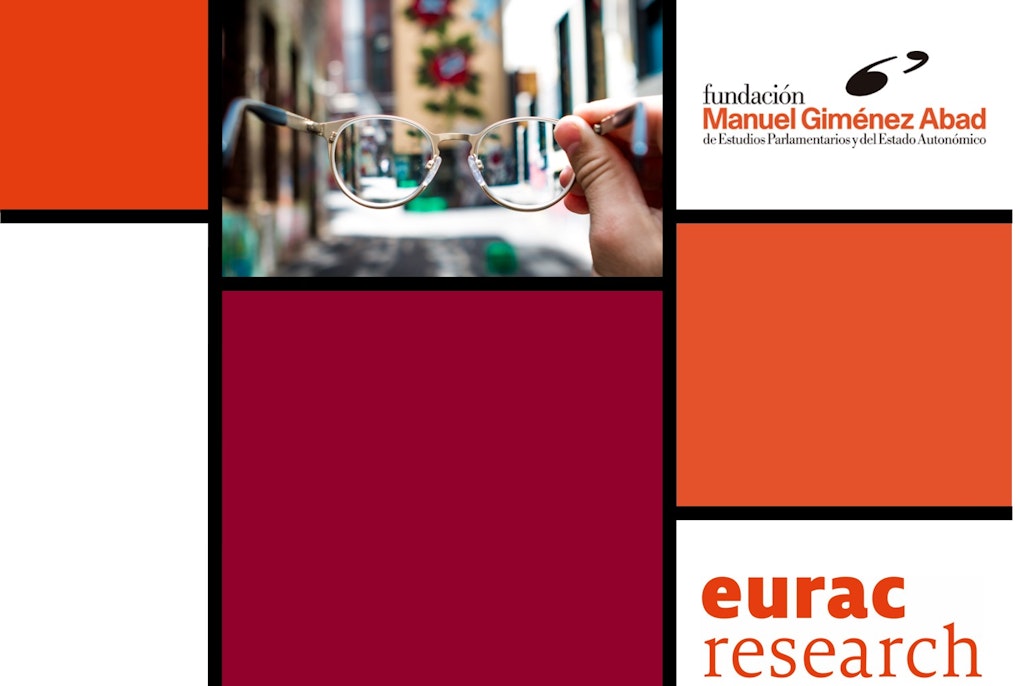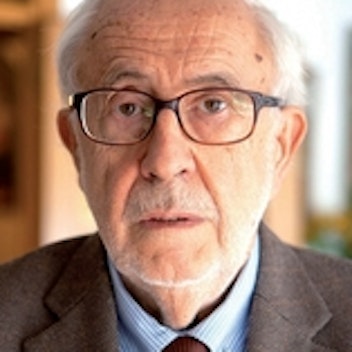
The Linguistic Constitution: a categorical model
 Juan José Solozábal Echavarría
Juan José Solozábal Echavarría 
Picture the European Union as a community which, steadily, has organized itself around principles and values. Thus, around these principles and values it decided to build a common arena where the community wanted to play a game. Usually, in a game of any kind there are winners and losers, there is a certain degree of competition and cooperation; it was the latter that represented the aspiration of the Europe after World War II, after ages and centuries of “unfair” competition. In the EU process (integration) there is, of course, the issue of uneven economic development with some countries economies far outstripping others, , but the first aim of the EU is to improve, for instance, the health and education of the community as a whole; secondly, to enhance the quality of the “living conditions” of the players (citizens), and coaches (National and EU institutions); and last but not least, to promote greater understanding each other. The game is a tool to foster greater understanding of each other, in order to bring together different and similar cultures and peoples. The goal of this game is to improve the quality of cooperation: by playing the game of “cooperation” unfair competition can be ended.
The Arena in the Making
Nonetheless, the context matters: the European community that wants to prove itself in this metaphoric cooperative game, was created during the cold war, after WWII and when Europe was extremely weak. The Schuman Declaration of 9 May 1950 represented the first official step in the economic integration of France and Germany. This declaration represented the beginning of economic cooperation in Europe, which eventually led to the adoption of the Treaty establishing the European Coal and Steel Community in 1951 and, in 1957, to the Treaties of Rome: European Economic Community (EEC) and the European Atomic Energy Community (EURATOM). Afterwards the European Community became more attractive to other countries: this has led to the enlargement of the European Union, which went beyond the purely economic integration, thanks to the adoption of newly improved Treaties, from Maastricht (1992) to Lisbon (2007).
European Values: the pillars of the Arena
The rules of the Statutes (Treaties) are inspired by the desire to share common values and principles: these common values are the backbone of the agreement. Again, any game encourages the strengthening of one’s community from the within: the EU project seeks “ever closer union” as stressed in Art. 1 of the Treaty of the European Union (TEU). The subsequent article (art. 2 TEU) highlights the main feature of the EU game, “playing” with the purpose of learning to live together and aiming at better cooperation: cooperation through shared values. The enforcement of and compliance with the abovementioned principles is the main task of the EU. Member States and EU institutions must guarantee that each State follows the basic rules of the game. Furthermore, Art. 4 TEU strengthens Art. 2: Member States shall assist each other and facilitate the achievement of the Union’s tasks and duties and must refrain from any actions that hinder the completion of these tasks. What happens when there is a clear violation of the foundational values by a member state? One of the remedies is the procedure outlined in Art. 7 (TEU), which empowers the Member States and EU Institutions to suspends the advantages (rights) deriving from the Treaties. Currently, EU values are under threat from within by certain Member States who are flouting the rules of the game and, it is proving very difficult for the EU to deal with these internal renegades. Furthermore, the EU is being challenged by outside threats from hostile powers and it is not helped by the fragility of its own institutions.
Elections and direction(s) of the EU
Cooperation is at stake and some teams are not playing according to the rules, others are playing unfairly and others are taking other paths (Brexit and its never-ending story). This is the current state of the EU arena in which some players are unclear about their commitment to its values and others are tempted to join different ‘championships’. Perhaps, the renewed agreement between France and Germany (Franco-German Treaty of Aachen of January 22, 2019) might be taken as an opportunity to recall the main reason for the establishment of the EU: cooperation to avoid conflict in Europe. Then, the EU elections represent a crucial if not a critical match in the course of the EU integration process. Undoubtedly the weaknesses and shortcomings of the EU are under the spotlight, particularly due its inefficiency in the face of the outbreak of 2007 economic crisis, but also because of political divergences between the North and the South of the Continent. Even though some teams are weaker than others, the answer remains in cooperation, in an “ever closer political union” through the enforcement of EU values and the European Pillar of Social Rights.
 | Adriano Dirri got his PhD in State Theory and Comparative Political Institutions at Sapienza – University of Rome in Februrary 2019. His main research interests are Comparative Constitutional Law, Comparative Federalism, Constitution-Making Process, African Constitutionalism and African Federal Studies. Keen in running and playing football. Running (similarly to Forrest Gump) from one country to another for research, to be specific. |
This content is licensed under a Creative Commons Attribution 4.0 International license.